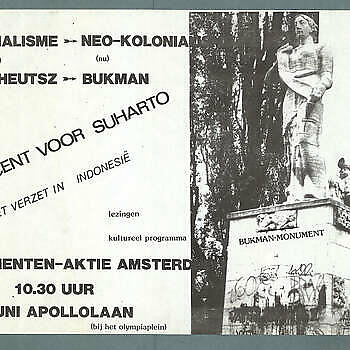Bukman faced many of the same problems as his predecessor Schoo and largely continued Schoo's course. In his policy note, Bukman placed the need for a coherent policy for structural poverty reduction at the center. Additionally, the note reflected on past experiences with aid policies.
The debt issue led to more attention being paid to balance of payments problems and non-project-bound aid forms in bilateral aid policy. Additionally, the Netherlands developed an initiative to obtain extra aid for the poorest countries, but this plan was never executed because it lacked support.
Both Bukman and Schoo wanted to transform the system of grants and loans into a system of grants for budgetary reasons. The Directorate-General for Foreign Economic Relations at the Ministry of Economic Affairs was not happy with this. In the end at the highest level, it was decided to maintain both systems.
The focus of Dutch policy shifted to rural and industrial development in 10 program countries in two regions. New procedures and implementation methods were designed to increase effectiveness. Bukman continued Schoo's policy of designating 18 sector countries and providing ad hoc support to them. This eliminated the formal development relationship between the Netherlands and the countries it helped, and there was no longer an overarching country policy. This fit with the international trend that had shifted its focus to the functioning of the market sector in developing countries. This development was in line with the growth of neoliberalism and the dominant position of the International Monetary Fund (IMF) and the World Bank. These organizations provided loans in exchange for Structural Adjustment Programs (SAPs), which comprised measures such as reducing government spending, opening the market to foreign companies, and economic reform with a focus on the export of raw materials.
Poverty reduction remained a central theme in development policy under Bukman. During Schoo's time as minister, the position of women received extra attention, and this focus remained under Bukman
Sources:
Notes:
Extra Sources:
- Jaarverslag Ontwikkelingssamenwerking - Feiten en achtergronden van het Nederlandse beleid 1988, * (1988), NICC collection, A00784
